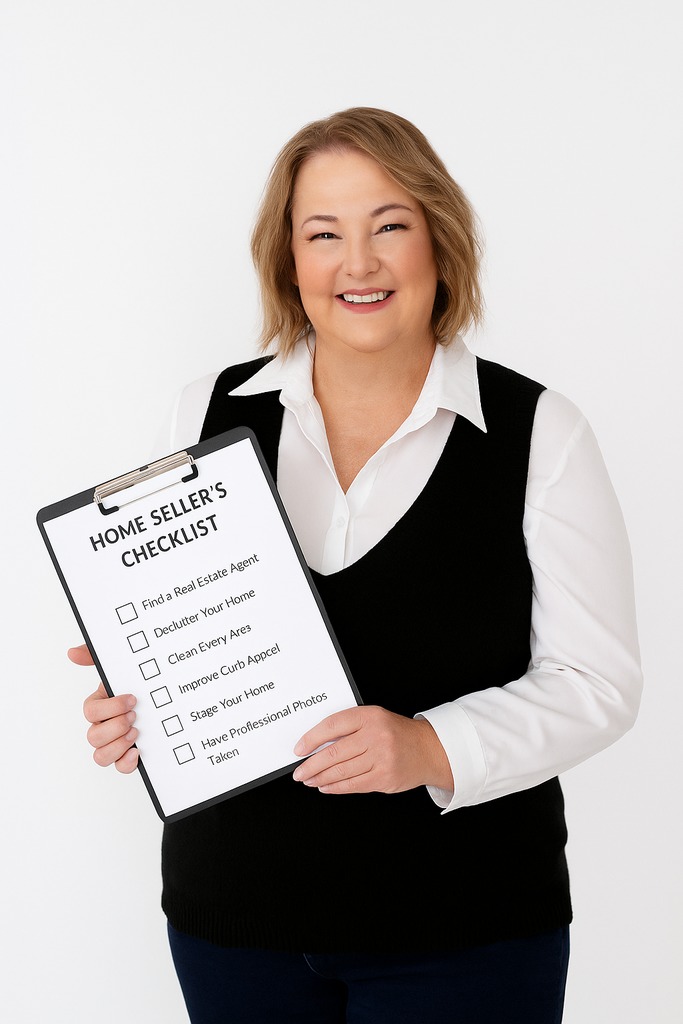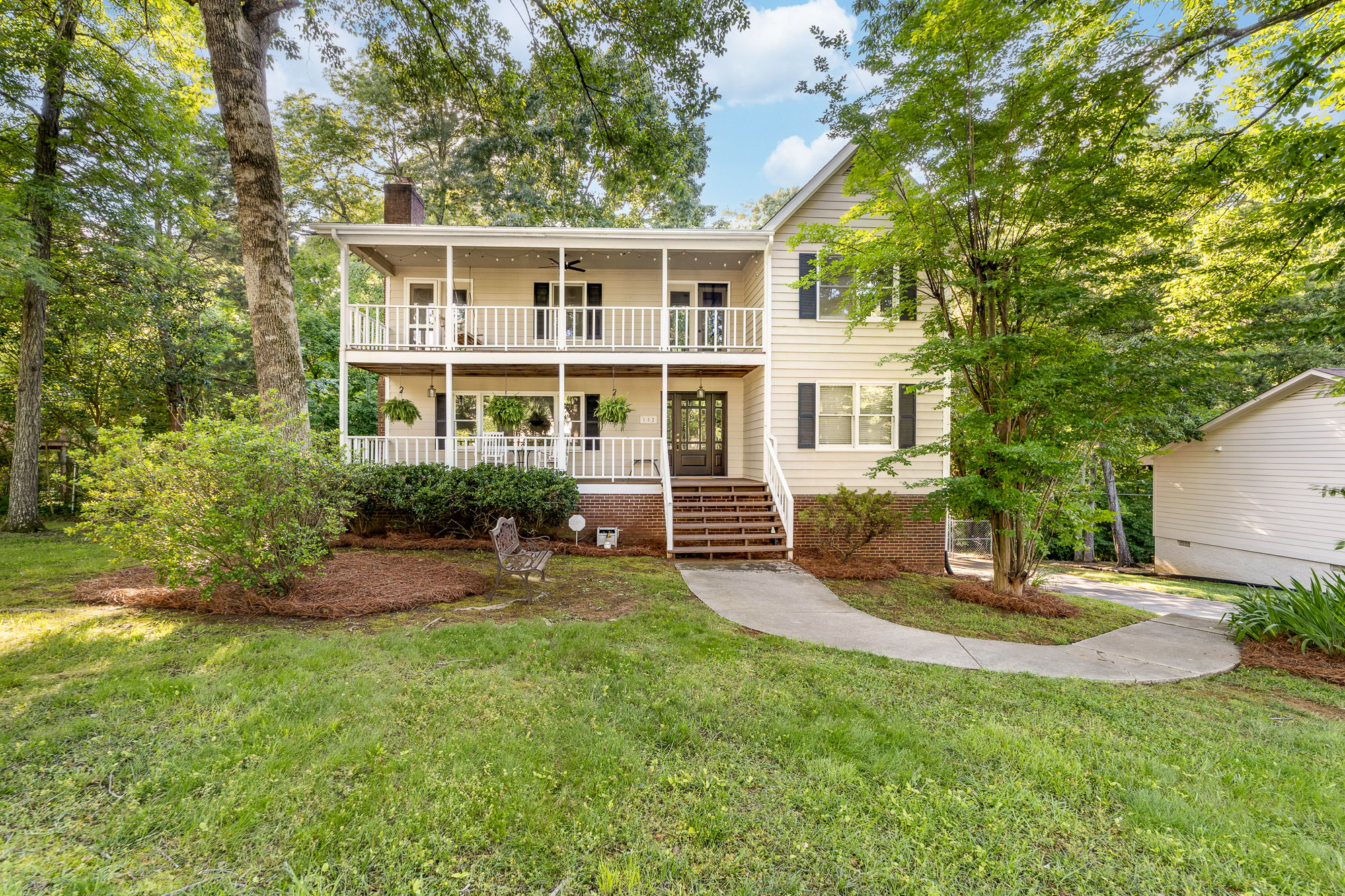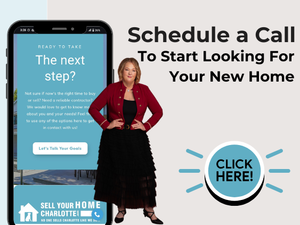Title: Private Listings vs MLS: What Dual Agency Means for Home Sellers in North Carolina
It’s happening more and more in real estate. A homeowner agrees to a "quiet" listing strategy—something exclusive, limited, and seemingly high-end. They’re told it will attract serious buyers and protect their privacy. But weeks go by, and the house sits with little interest. Eventually, they start to wonder: If no one knows my home is for sale, how is it supposed to sell?
This isn’t just a coincidence. Some brokerages are now training their agents to use private listings or push in-house deals as a go-to strategy. It’s often framed as a cutting-edge way to serve clients—but in reality, it serves the brokerage more than the buyer or seller.
In the North Carolina real estate market, private or "office exclusive" listings and dual agency are increasingly common buzzwords. They’re presented as innovative solutions, but when you peel back the marketing, both raise a tough question: Who does this actually benefit?
Spoiler alert: it’s often not the consumer.

The Truth About Private Listings
In North Carolina, private listings often take the form of "office exclusives." An agent signs a listing agreement and convinces the seller to market the property only within their brokerage—usually for a short window like one or two weeks—to see if they can get a buyer in-house and potentially double-side the deal.
While it’s legal, it can be risky for the seller. These listings aren’t entered into the MLS and aren’t widely advertised. Sometimes agents present it as a way to “test the market” or protect the seller’s privacy. Other times, they suggest that marketing to their own office gives them better control over the process.
But let’s be clear: limited exposure = limited competition.
Homes not shared with the full MLS system typically receive fewer showings and offers, which can mean less money for the seller. Even in a hot market, visibility drives results. And while the seller might save on showings or prep time, the real cost could be thousands left on the table.
What’s Changing: New Zillow Rules
Zillow recently updated its platform policies in response to growing scrutiny over pocket listings and transparency. As of 2024, homes listed as office exclusives are no longer automatically syndicated to Zillow unless they are placed on the MLS.
This means that if your home is marketed privately, it won’t show up on one of the largest consumer home search sites. That could be a dealbreaker for many sellers—and it adds another layer of concern for those who may not realize the full consequences of a private strategy.
When I list a home, I want the world to see it. Your property should be the star—professionally staged, photographed, marketed across every channel. I work to create demand, not suppress it.
What Is Dual Agency in North Carolina Real Estate?
Dual agency happens when one agent represents both the buyer and the seller in the same transaction. It’s often pitched as a way to simplify the process or "keep everything under one roof."
But seriously: would you trust one attorney to represent both sides of a lawsuit? No? Then why would you allow one real estate agent to negotiate for both buyer and seller?
In North Carolina, dual agency is legal if disclosed, but legal doesn’t mean advisable. Once an agent is working both sides, they can’t fully advocate for either client. No advice, no negotiations, just paper-pushing.
When I list your home, I work only for you. If a buyer approaches, I refer them to a trusted colleague. That way, both parties have a skilled advocate in their corner. Transparency and trust matter.
What About Designated Agency?
Some brokerages practice what’s called designated agency—where two agents from the same firm each represent one side of the transaction. On paper, this offers the benefits of representation while staying within the same brokerage.
But here’s the catch: while the agents are designated, the firm itself remains a dual agent. That can raise concerns about how confidential information is handled and where the ultimate loyalty lies.
When I was part of a larger brokerage, our broker-in-charge kept a whiteboard with deal projections—listing price, status, agent names, and estimated commission. The idea was to track potential revenue for the office. But that meant nearly anyone in the office could see private details about my transactions. I pushed back because I knew that if a deal fell through, and those details leaked, it could hurt my seller’s negotiating power.
That’s just one example of why designated agency can blur lines of confidentiality.
If you’re a seller interviewing an agent whose firm practices dual or designated agency, here are a few important questions to ask:
Will anyone else at your brokerage know the details of my listing before it’s public?
How do you protect confidential information internally?
Who would represent the buyer if they came from within your firm?
What controls are in place to prevent internal leaks or favoritism?
Will I be notified if another agent in your office brings a buyer?
In my business, I choose to avoid even designated agency when possible. I prefer clean lines—one agent, one client, one goal. That way, you never have to question whose interests I’m protecting. It’s always yours.
 Real Estate Shouldn’t Be a Game of Secrets
Real Estate Shouldn’t Be a Game of Secrets
The core issue behind both private listings and dual agency is this: they rely on limited access to information. And that works against the very people we’re supposed to serve. My clients hire me to be their champion—not a neutral middleman or gatekeeper.
These practices aren’t new, but they’re becoming more common—and they’re quietly reshaping how real estate works. What used to be the exception (like a private listing for a celebrity) is now being pitched as a benefit to everyday sellers.
But let's be real: when did less marketing become a good thing for the person selling something?
If you were selling a car, would you only tell one dealership about it? If you owned a business, would you advertise to only a handful of customers? Probably not. So why should your biggest asset—your home—be marketed in secret?
It’s a trend that’s bubbling up, marketed as discretion and convenience. But in reality, it shrinks your audience, reduces competition, and may cost you money. And when combined with dual agency, it raises even more red flags about whose interests are truly being served.
The way I work is simple: full exposure for your listing, and full loyalty in representation.
About the Author
Hi, I’m Maureen Mahood, Broker-Owner of SellYourHomeCharlotte.com. I’ve been representing buyers and sellers across the Charlotte Metro since 2015. My business is built on full transparency, smart marketing, and dedicated representation. I believe you deserve a real estate experience that protects your interests, informs your decisions, and gets you results.
Have questions about how agency relationships work or want to make sure your listing gets maximum visibility? Let’s connect!
Frequently Asked Questions About Private Listings and Dual Agency in North Carolina
1. What is a private or pocket listing in real estate?
A private or pocket listing is a home for sale that isn't publicly advertised through the MLS. It's only marketed to select agents or buyers.
Pro: Sellers maintain privacy and can avoid open houses or public exposure.
Con: Limited visibility often results in fewer offers and lower sales prices. I prefer full exposure to maximize demand and value.
2. Is a private listing better for luxury homes?
Some agents argue that luxury listings benefit from privacy. In rare cases, high-profile clients may need discretion.
Pro: Privacy may protect a celebrity seller.
Con: Most sellers want the best offer—and that usually comes from open competition. I market every home widely, luxury or not.
3. What is dual agency in real estate?
Dual agency is when one agent represents both the buyer and the seller in the same transaction.
Pro: One point of contact may seem simpler.
Con: The agent can’t fully represent either side—no advice, no negotiations. I don’t do dual agency. I stay loyal to your interests.
4. What is designated agency and how is it different from dual agency?
Designated agency is when two different agents within the same brokerage represent the buyer and seller.
Pro: Each client has their own agent.
Con: The firm still acts as a dual agent, which can raise confidentiality concerns. I avoid designated agency when possible to ensure my loyalty is crystal clear.
5. What are North Carolina's rules about private listings?
North Carolina allows office-exclusive listings if the seller agrees in writing and the home is not marketed publicly.
Pro: Some sellers prefer privacy or control.
Con: These listings don’t reach the full MLS audience—and may not appear on major sites like Zillow unless added to the MLS. I believe broad marketing is key to a successful sale.
6. What are Zillow’s new rules on private listings?
As of 2024, Zillow no longer automatically displays homes marketed privately or as office exclusives unless they are listed in the MLS.
Pro: Encourages transparency in listings.
Con: Sellers may lose valuable visibility without realizing it. I ensure every listing gets full reach across top platforms.
7. Can a seller make more money with a private listing?
Some agents claim private listings lead to higher offers due to exclusivity.
Pro: It might create urgency among a small group of buyers.
Con: Data shows homes typically sell for more when listed on the MLS. I aim for multiple buyers, not secret offers.
8. Why do some agents push private listings or dual agency?
Because they keep more control and potentially double their commission. Some brokerages even train agents to prioritize these practices.
Pro: Agents benefit from in-house deals.
Con: Clients may get less exposure or weak negotiation. I prioritize client results over commission.
9. How do I know if my agent is truly working for me?
Ask about their stance on dual agency, designated agency, and how they handle confidential listing information.
Pro: Exclusive representation means clear advocacy.
Con: Internal firm policies could expose private details. I ensure every client’s listing is treated with discretion and loyalty.
10. What’s the best way to get top dollar for my home?
Full exposure, skilled marketing, and a fierce advocate.
Pro: A strong agent ensures your home shines.
Con: Limited exposure or split loyalties undercut your bottom line. I fight for every dollar with strategy and heart.
Want to see what your home is worth with full MLS marketing exposure?
Get your free home value report here
Thinking about selling your home but not sure how representation works?
Let’s talk—book a no-pressure consultation




